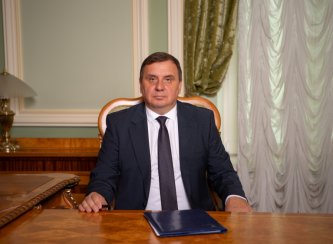Contact center of the Ukrainian Judiciary 044 207-35-46

This was stated by the President of the Supreme Court, Stanislav Kravchenko, during a meeting with representatives of the Venice Commission, which was devoted, in particular, to the discussion of the draft laws "On amendments to the Law of Ukraine "On the Judiciary and the Status of Judges" with regard to the introduction of additional procedures to strengthen public trust in the judiciary".
The Chief Justice recalled that on August 4, 2023, the Plenum of the Supreme Court addressed the Parliament with an opinion on these legislative initiatives, expressing its reservations about the proposed amendments and the need to finalise them.
Thus, according to the Plenum of the Supreme Court, certain provisions of these draft laws pose a threat to the independence of the judiciary and will lead to a violation of the principle of judicial independence.
Specifically, with regard to the idea of introducing a procedure for monitoring the work of the court, the Plenum of the Supreme Court suggested that it could be based on the following hypothesis: if a judge of a particular court has committed acts that show signs of a criminal offence and in respect of which he or she has been notified of a suspicion, it is likely that there are other judges in that court who have committed similar acts.
Even if such a consequence for other judges cannot be considered liability in the classical sense, the scrutiny of all judges due to the actions of one judge is a negative consequence for those judges. Therefore, such collective scrutiny should be assessed through the prism of the standards of individual/collective responsibility of judges.
In addition, the draft laws provide for urgent monitoring of the work of the Supreme Court no later than 14 days after the relevant legislative amendments come into force, but according to Stanislav Kravchenko, it is impossible to meet this requirement in such a short time. In addition, such a provision will expand the powers of the High Council of Justice and at the same time place an additional burden on it, given that during the period of absence of the authorised composition of the HCJ, it received approximately 11,000 complaints for consideration.
At the same time, the issue of monitoring itself remains unclear. If we are talking about checking the integrity and property declarations of judges, then these procedures are regularly carried out, if there are grounds, by the High Qualification Commission of Judges of Ukraine and the National Agency for the Prevention of Corruption, so there is no need to adopt additional legislation and duplicate their powers. At the same time, if it is about an inspection of court proceedings, no one has the right to interfere with the procedural activities.
Stanislav Kravchenko also added that the introduction of polygraph tests for judges poses a threat to the independence of the judiciary and the risk that this procedure will be used to take revenge on a judge for a decision he or she has made. Moreover, it is impossible to rely entirely on the results of such studies, as the scientific reliability of polygraph test results is insignificant.
The advisability of introducing new procedures for vetting judges is therefore questionable, as is the practical feasibility of implementing them. This is particularly the case given that there are already numerous mechanisms in place to vet judges, their integrity and their assets.
After his speech, Stanislav Kravchenko answered questions from the representatives of the Venice Commission on the draft laws under discussion.
The meeting took place as part of the Venice Commission's preparation of an opinion on the Parliament's recent legislative initiatives to introduce a procedure for monitoring the activities of the courts. According to the Commission's representatives, the opinion is due to be adopted on October 6, 2023.